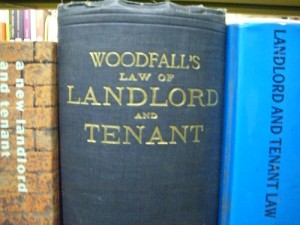So You Want to Evict a Tenant
Nobody wants to have to evict a tenant but unfortunately there is sometimes no option but to do so. When this happens the proper legal process must be followed to ensure the eviction is successful and the landlord is not guilty of an offence.
Under the Protection from Eviction Act 1977, an act which prevents property owners from evicting occupiers without a court order.
The Law Preventing Eviction Without a Court Order
The Protection from Eviction Act 1977 states that;
“If any person unlawfully deprives the residential occupier of any premises of his occupation of the premises or any part thereof, or attempts to do so,  he shall be guilty of an offence unless he proves that he believed, and had reasonable cause to believe, that the residential occupier had ceased to reside in the premises”.
he shall be guilty of an offence unless he proves that he believed, and had reasonable cause to believe, that the residential occupier had ceased to reside in the premises”.
What this means is that, if a landlord evicts a tenant without a court order, he is guilty of an offence under the Act, the maximum penalty for which is 2 years imprisonment. It is also an offence to act in a manner so as to cause the occupier from giving up occupation. This could involve cutting off services or harassing the occupier.
Evicting a Tenant When the Term of Tenancy Has Come to an End
Where the term of the tenancy agreement has come to an end the landlord must serve notice in writing on the tenant that he requires possession of the property if he wishes the tenant to leave. The notice must give the tenant not less than two months to vacate and can be served on or after the date which is two months from the date on which the term is due to expire. It should state that it is given in accordance with section 21(1)(b) of the Housing Act 1988.
Upon expiry of the notice, if the tenant refuses to vacate, an application must be made to the County Court for an order for possession under section 21 of the Housing Act 1988. The court is obliged to grant the order if it is satisfied that the tenancy is an assured shorthold tenancy, the date of expiry of the term has passed and the notice referred to above has been validly served.
Evicting a Tenant for Non-Payment of Rent
If a landlord intends to evict a tenant for no-payment of rent he must first serve a notice on the tenant under section 8 of the Housing Act 1988.
The notice must inform the tenant that the landlord intends to commence legal proceedings on a date no earlier than two weeks and no later than twelve months from the date of the notice. It must specify that the ground on which proceedings will be commenced is ground 8 of Schedule 2 to the Housing Act 1988.
If the rent is paid weekly or fortnightly then the payments must be at least eight weeks in arrears on both the date the notice is served and the date of the possession hearing. If it is paid monthly there must be at least two months’ arrears, if quarterly, one quarter’s rent must be three months in arrears and if annually, three months’ rent must be three months in arrears.
On expiry of the notice the landlord must file a possession claim at the County Court and at the hearing, if the above conditions are met, the court must grant an order for possession.
Enforcing the Possession Order
Once a possession order is granted the tenant must vacate the property however that does not entitle the landlord personally to forcibly evict the tenant. Instead, if the tenant refuses to leave, he must apply again to the court for a warrant for eviction. Once granted the court bailiffs will attend the property and, if necessary, forcibly evict the tenant.
Costs and Fees
The current court fee for an order for possession is £150 and the bailiff fee a further £95.
Photo by umjanedoan
You can follow any responses to this entry through the RSS 2.0 feed. Both comments and pings are currently closed.
